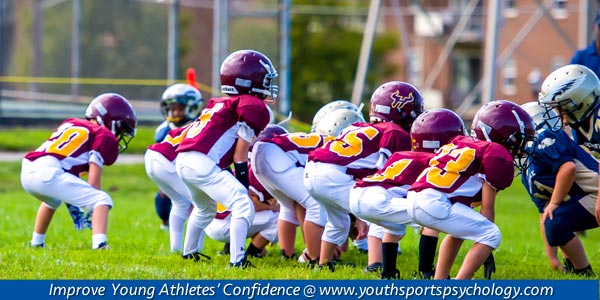
The Bullying Epidemic in Youth Sports
Last week, CNN released a CNN/Opinion Research Corporation poll showing that slightly more than a third of teens personally have been subjected to bullying behavior.
In the poll, more than two-thirds of teens said their friends had been bullied. Yet most adults believe bullying is a minor problem or not a problem at all, the poll found.
The poll defined bullying as ridiculing, humiliating or verbally or physically threatening another child, either in person or online.
Bullying is an epidemic in sports, just as it is in schools and other places. The many sports parents who have written us about bullying say their young athletes are teased, harassed and threatened by bullies.
Bullies will also exclude young athletes from social groups or try to intimidate them into quitting sports. But that’s not all. Young athletes must also deal with “bully coaches,” coaches who threaten, yell and intimidate.
Athletes who are subjected to bullying will often feel angry or frustrated, lose focus, play or perform tentatively, feel anxious, drop out of tournaments or competitions, or quit sports altogether. What’s more, they’re reluctant to tell their parents they’ve been bullied because they’re embarrassed or feel shame.
But here’s the good news: You can help your young athletes learn how to stay mentally tough in the face of bullies—and learn critical skills that will help them deal with these kids in all areas of their lives.
“First, Parents should be on the lookout for a drop in the child’s self esteem,” Paul Pickhardt,, Ph.D., the author of “Why Good Kids Act Cruel,” told us in an interview.
“Bullied kids think there is something the matter with them. This deflates them and creates a lack of social safety,” he says.
You also need to encourage open communication and be on the lookout for bullies in sports.
If you’re at all worried that your child is now the target of bullies, or may in the future be a target (which is very likely), you can begin teaching your young athlete right now how to stay confident in the fact of bullies.
For example, a critical tool is using sports psychology techniques to help kids stay focused and avoid getting distracted by bullies. Often, kids can’t get bullies “out of their heads,” parents tell us. If kids can get immersed in the process of playing sports, they won’t let the bully get into their heads and hurt them.
You can also use our sports psychology tips to help kids stop making comparisons to others—especially bullies. When kids stop comparing themselves to others, they aren’t as susceptible to being hurt or targeted by bullies.
Related Articles on Kids’ Mental Game:
- When Sports Kids Are Bullied By Coaches
- How Should Parents React When They See a Player Bullied?
- Sports Parents: You Can Help Your Athletes if They Are Bullied
*Subscribe to The Sports Psychology Podcast on iTunes
*Subscribe to The Sports Psychology Podcast on Spotify
Improve Your Mental Game From Anywhere In The World

We’re certain that, as a parent, you want to help your child develop confidence and discipline in sports and life. And as a sports parent, you’d love for your children to reach their potential in sports. But encouraging your child to strive for greatness without pressuring them can be a challenge.
You can get expert mental coaching with us from anywhere. Meet with us via Zoom, Skype, FaceTime or phone call. With today’s video technology, we are able to connect with athletes and coaches all over the globe.
Call Us Today to Schedule Your Free 15-Minute Session.
Find Out How Your Athlete Can Benefit From One-on-One Mental Coaching!
